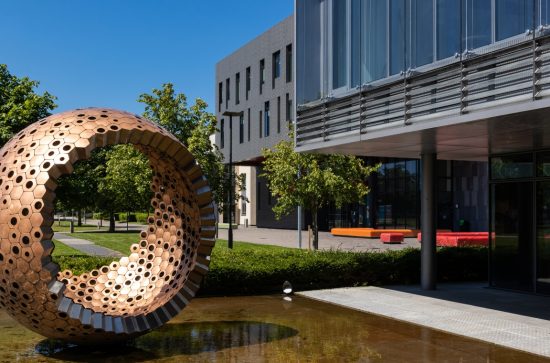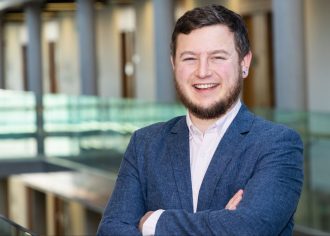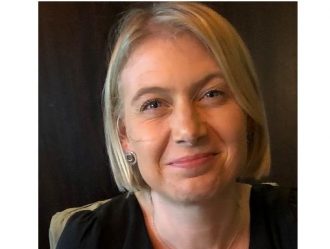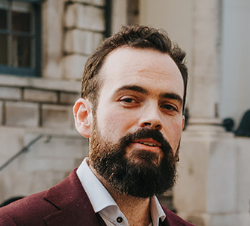
Taighde Eireann - Research Ireland (formerly IRC and SFI) has just announced the New Foundations 2024 Awards. Maynooth University has received seven awards this year, of which five are for awardees based in the School of Law & Criminology.

Led by Dr. Ian Marder, Associate Professor in Criminology, VICINFO will identify how information sharing can maximise access to restorative justice for victims of crime. It will study the challenges for information sharing in Ireland and across Europe, with a focus on victims’ contact details, and identify enabling laws, policies and procedures from other countries on which Ireland can draw. The research questions are:
- What are the challenges relating to information sharing for restorative justice providers?
- What laws, strategies, procedures, policies or practices have EU countries established to enable information sharing, making restorative justice accessible for victims?
- How can Ireland share information to maximise victims’ access to restorative justice, and what are the implications for restorative justice and victim services across Europe?
The VICINFO project is a collaboration with Restorative Justice Services, the civic society partner for the project, and is overseen by an Advisory Group drawn from statutory, community and legal sector stakeholders in Ireland. It will involve:
- A review of the existing literature exploring the issue of information sharing for restorative justice provision, and for the accessibility of victim services more broadly.
- A review of relevant data protection laws and policies in Europe and Ireland.
- A mapping exercise of laws, policies and procedures across Europe, with a focus on those that help maximise the accessibility of restorative justice through information sharing.
- Interviews with: a) victim rights and services experts across Europe, b) professionals in at least three countries which have enabling approaches and c) professionals in Ireland who understand the specific challenges here and can comment on the possible solutions.
- A final event during International RJ Week 2025 (November), at which all those involved in this area of work in Ireland are invited to explore the project findings and discuss how best to maximise the accessibility of restorative justice in Ireland.
- The dissemination of the findings to policymakers in European institutions and in criminal justice systems around Europe to inform and assist the implementation of European and national victims’ rights law, policy, strategy and service coordination and cooperation.
The Role of Medical Evidence of Torture in the Irish International Protection Process

Led by Dr Clíodhna Murphy, Associate Professor with the School, Clíodhna's research examines the role, operation and impact of human rights in migration law and policy.
A high proportion of asylum applicants worldwide have experienced torture, with estimates of the prevalence of torture amongst this group ranging from 30% to 60% (Duffy & Kelly 2015). Medico-legal reports (MLRs) play a vital role in the international protection process by providing objective medical evidence in relation to a torture survivor’s application. However, there has been no research into the role and impact of MLRs in practice in Ireland.
This socio-legal project - undertaken in partnership with Spirasi, Ireland's National Centre for Survivors of Torture - will analyse decisions of the International Protection Appeals Tribunal to determine the impact of MLRs in the work of the Tribunal. It will also conduct interviews about legal and practical issues associated with the use of MLRs in the protection system. It is hoped that these insights will enhance transparency within the international protection system, support quality decision-making at first instance and on appeal, and promote timely access to protection for torture survivors.
More broadly, the project aims to promote a human rights-based approach to medical evidence of torture and the development of a less adversarial environment for survivors which would support - rather than hinder - rehabilitation.

Led by Dr Bríd Ní Ghraínne, Associate Professor, in partnership with the Irish Refugee Council.
Bríd is an expert in the Law of Forced Migration, particularly on the topic of Internally Displaced Persons (IDPs).
Under international law, asylum-seekers cannot be penalized for landing in a state without a valid travel document (e.g. visa or passport). Their flight from persecution means that obtaining such documents will likely be dangerous or impossible. Yet, since January 2024, there has been a spike in the number of prosecutions in Ireland of asylum-seekers for arrival without such documents.
The ’Criminalizing Asylum in Ireland’ project asks to what extent these prosecutions are compatible with international law. Specifically, it aims to determine the circumstances in which these prosecutions happen, their effect on asylum-seekers, and their compatibility with the Refugee Convention, EU, and international human rights law.
Neurodiversity and Mental Health: Cultural Barriers Experienced by International Protection Applicants and Other Immigrant Populations in Ireland

This project is a collaborative initiative between ADHD Ireland and Maynooth University, led by Dr Etain Quigley, Lecturer in Law. Dr Quigley’s research centres on neurodiversity among vulnerable populations, particularly within the youth justice system and, more recently, among international protection applicants.
The project aims to develop a reusable learning resource for Irish policymakers that addresses the intersection of neurodiversity, mental health, and international protection. Central to this effort is a commitment to cultural sensitivity and decolonisation, challenging Western-centric frameworks by incorporating non-Anglophone perspectives and lived experiences.
Key deliverables include:
- A systematic review of literature on neurodiversity and international protection, with a focus on mental health and health literacy.
- Six expert advisory panel meetings with international specialists to present findings, gather feedback, and facilitate interdisciplinary knowledge exchange.
- A policy-focused think-in session to share the learning resource with Irish policymakers and promote its integration into practice.
The project aspires to foster more inclusive and culturally responsive policy development, ultimately aiming to establish a standardised, culturally appropriate system pathway for neurodivergent international protection applicants.

The study led by Dr Cian Ó Concubhair, Assistant Professor in Criminal Justice, is inspired by recent developments around the legal protections for confidential journalist sources in Ireland, and high-profile examples of state surveillance and intrusion into journalistic activities North and South.
This study builds on Dr Ó Concubhair’s existing body of legal scholarship on ‘journalistic privilege’ by incorporating focused qualitative research methods and political theory.
The study will assess crime and security journalists’ perceptions of their status in Ireland’s democracy and constitutional order.
